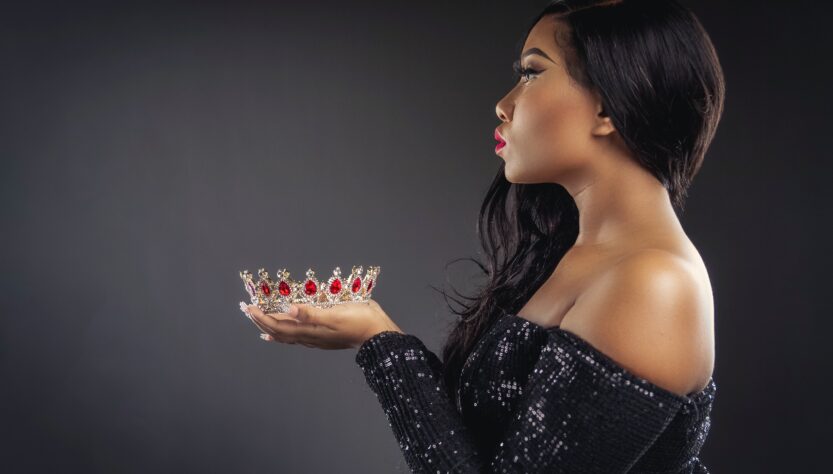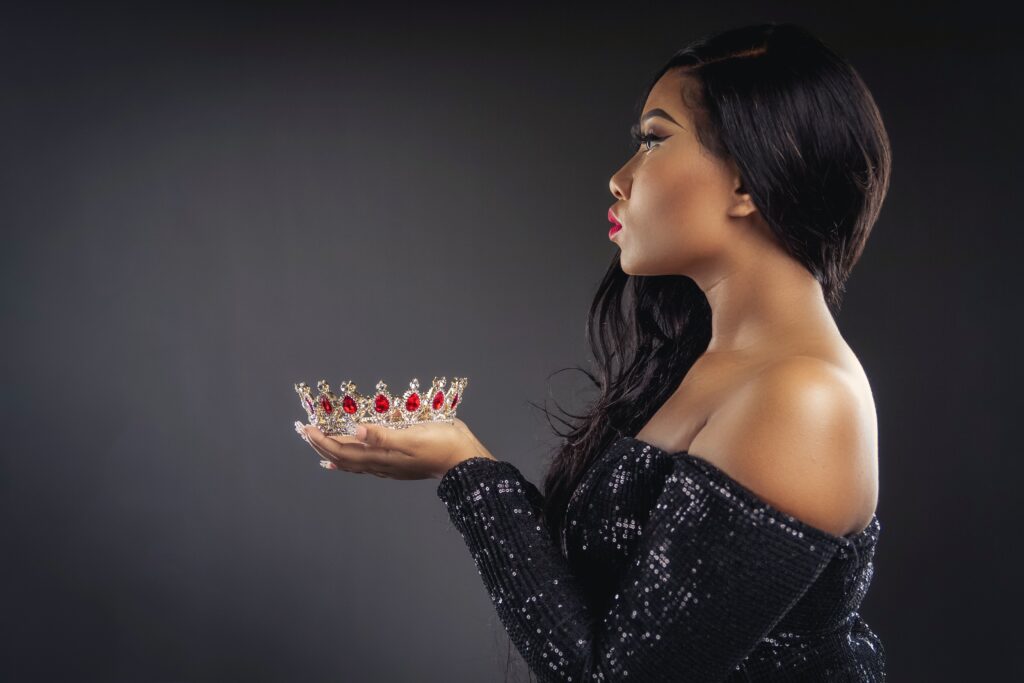
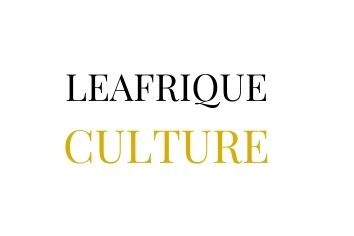
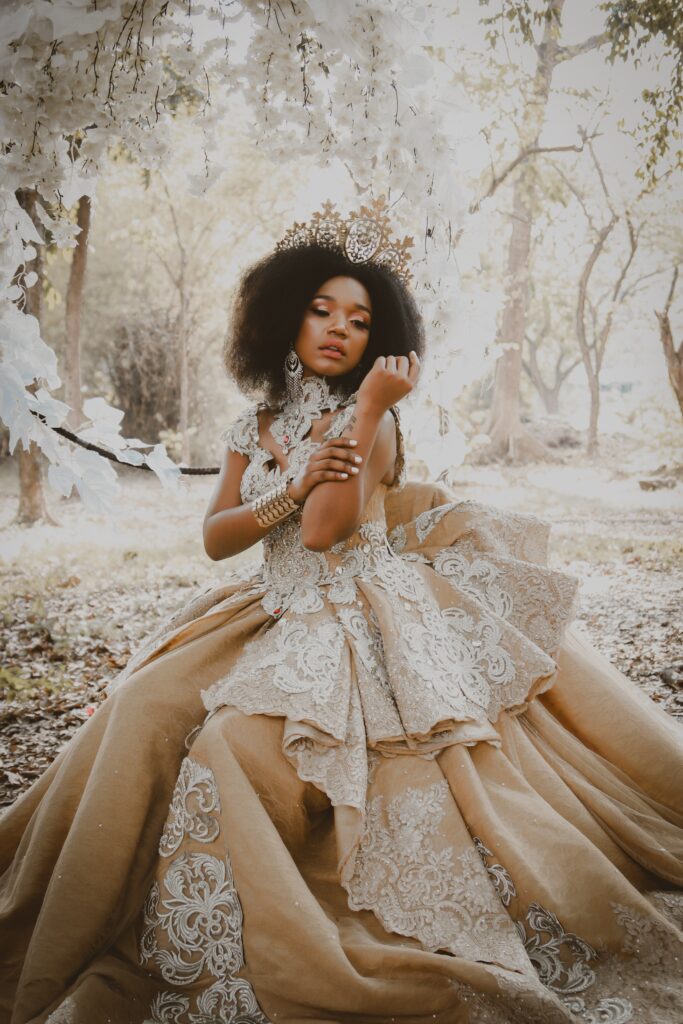
RAINHAS AFRICANAS
A realeza feminina na África
Por Eliana Oliveira
Editora Chefe
“Olhe o passado para você entender melhor o futuro”.
Recentemente o mundo perdeu um ícone de poder feminino atuante durante 70 anos de reinado. A Rainha Elizabeth II foi uma das mulheres mais fascinantes que já existiu. Durante alguns anos me dediquei a fazer uma pesquisa mais profunda sobre as Rainhas africanas através dos seus descendentes. Porque eu estava buscando a legitimidade da sua existência com provas, fugindo muito das histórias criadas com fantasias e até uma certa lenda em torno delas. O que é mas me intriga é que nesta época, em que estamos vivendo não se fala, sobre as rainhas africanas vivas e pouco se fala da realeza africana. E que ainda existe vários reinados atuantes no Continente africano. A Magazine Le Afrique Style Brazil está trazendo esta verdade à tona através, dessas mulheres que estão vivas e fazem parte do reinado africano. Enquanto a mídia estava voltada para a Inglaterra, eu estava em busca dos descendentes vivos desta realeza feminina africana.
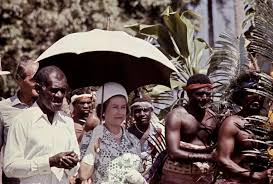
Tivemos a honra de ter no lançamento da Magazine um editorial de moda exclusivo com a Rainha-Mãe Naa Fynnba Korkoi Atiapa 1 da área tradicional de Ngleshie Alata Lafa de Ghana um editorial de moda exclusivo realizado por mim. Será que alguém, percebeu a grande importância deste editorial exclusivo para os afros descendentes, para o Brasil e o mundo?! Também tivemos a honra de estampar na nossa capa a vossa alteza a Princesa Ronke Ademiluyi da Nigéria. E esta busca não parou por aí, o Continente africano é um berço cheio de mistérios e um desses vem, justamente sobre a realeza feminina. Um tema muito cobrado e atual neste momento principalmente quando chega o filme A Mulher Rei estrelado pela atriz Viola Davis que esteve aqui no Brasil para fazer a divulgação.
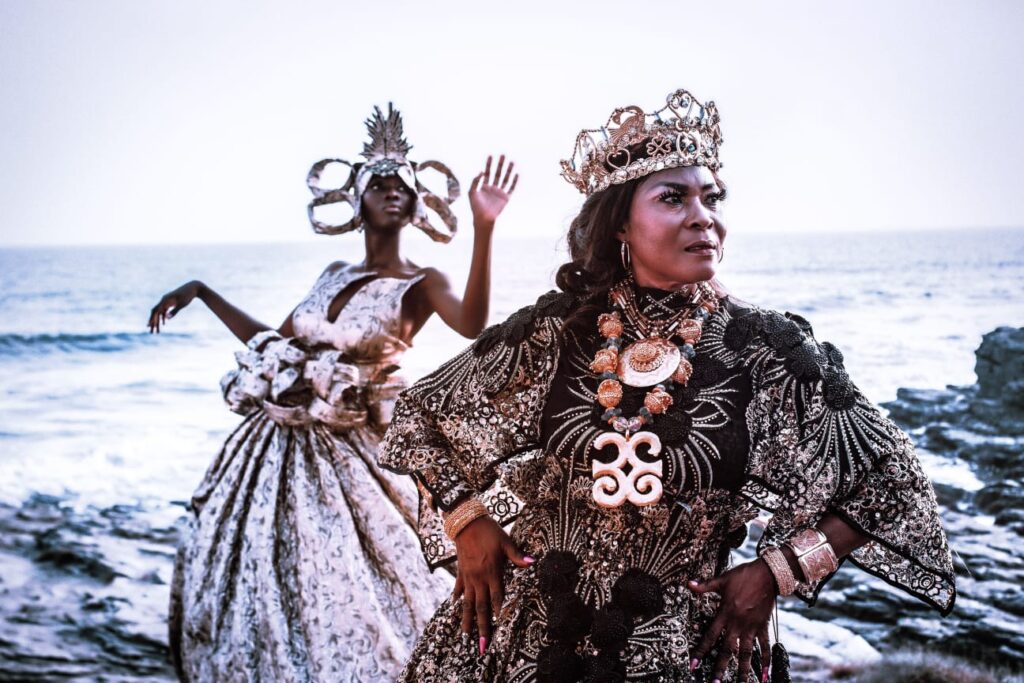
A minha necessidade de trazer este tema de forma verdadeira está não somente em trazer visibilidade e legitimidade ao assunto da realeza feminina, mas dar luz, esclarecimento, informação, entendimento e valorização dentro desta narrativa. Nas minhas pesquisas eu tive a honra de conhecer e entrevistar a empresária e produtora de TV Linda Fernando de Mozambique que é uma Achivánjila. Uma história emocionante, cheia de nuances e verdades. Histórias de mulheres que carregam no seu DNA a força e a determinação da Rainha Achivánjila. O trono Achivánjila não chega por linhagem, mas por eleição, pelo conselho de anciões(…) todas obedecendo ao mesmo perfil; ser forte e inteligente. E a forte vontade de superar obstáculos, ter a capacidade para se dedicar as causas nobres. Altruísmo, bondade, capacidade de dar vida pela sua comunidade nos momentos de crise. Uma bibi Achivánjila é sempre a árvore de raízes profundas e fiel depositária dos espíritos Mataka. A Rainha Achivánjila é a mãe da nação, dos moçambicanos.
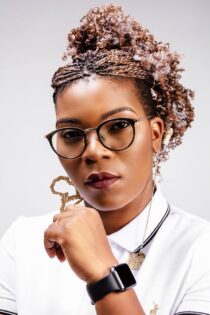
“A Wulombe ri nandzi ya ha roche”
Tradução: “A verdade pode tardar, mas sempre chega”.
Este é um provérbio Changana – uma etnia africana em Moçambique.
Foi justamente esta busca pela verdade que me levou de encontro a Nigéria. O Reino de Ifé é um dos primeiros reinos da África que teve reis e rainhas e dinastia real, esta realeza remonta a séculos atrás antes do cristianismo e isso podemos mostrar através das nossas escrituras de Ifá. Palavras da vossa alteza real a princesa Ronke Ademiluyi. Que me conta mais sobre a sua ancestralidade. Ela, diz; Eu sou uma princesa do Grande Reino de Ifé, de onde vem o Progenitor da raça Yorubá. Eu sou uma grande descendente de Oduduwa o Progenitor da dinastia Yorubá. Oduduwa foi o 1º Ooni de Ifé, o grande e antigo reino de Ifé remonta a mil anos atrás e o Marido de Olokun e eu, que viemos dessa linhagem.
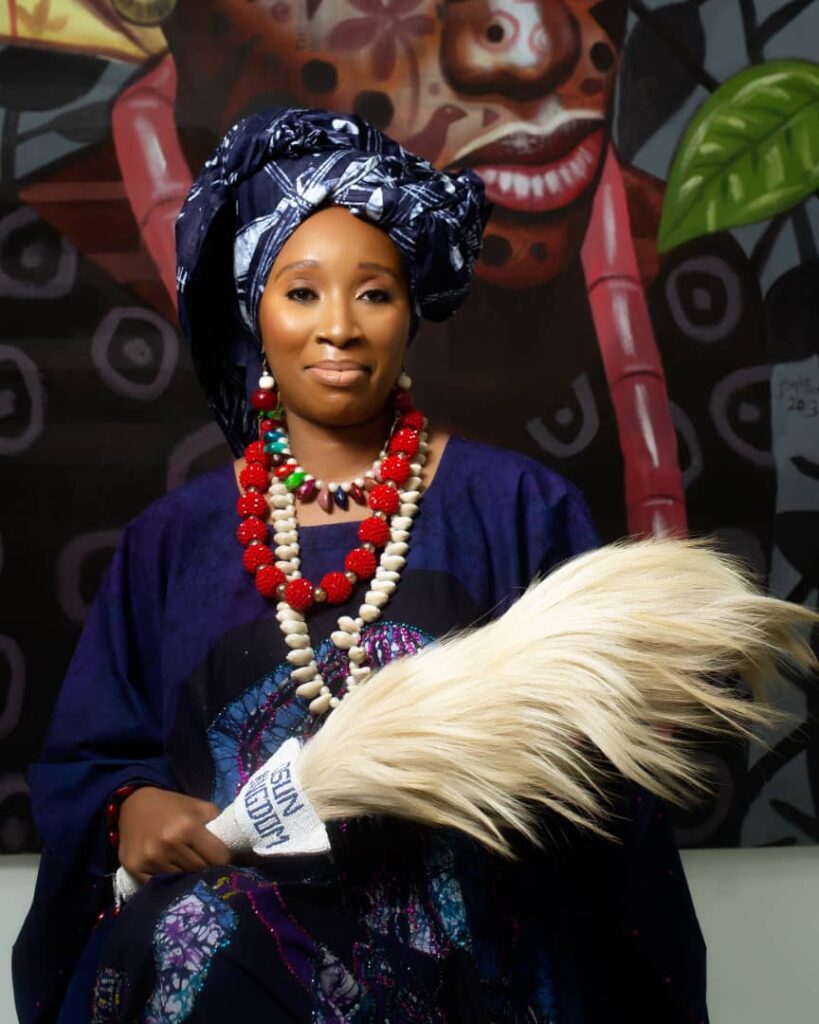
Eu sou uma princesa da fonte, como Ifé é considerada o lar espiritual e fonte de todos nós negros, meu bisavô era um rei de Ifé e eu tenho um estreita relação com Sua Majestade Imperial Ooni Adeyeye Ogunwusi Ojaja II, o atual Rei do Reino de Ifé. Então nossa Monarquia da África remonta a milhares de anos atrás, foi o colonialismo ocidental durante a disputa pela África que desativou a maior parte do poder de nossos reis e rainhas e também durante o comércio de escravos também quando tantos membros da realeza africana foram capturados e vendidos como escravos. Uma passagem de um tempo que embora esteja escondido da humanidade, ainda traz muita dor na alma. Nesta conversa franca que eu tive com a vossa alteza real a princesa Ronke Ademiluyi que eu estava fazendo uma entrevista, e ao mesmo a produção da capa da magazine com ela. Ela me conta a história da Rainha Moremi que virou uma obra literária escrita por ela intitulada de UNSPOKEN. Que também virou um musical escrito e dirigido por ela, e um documentário.
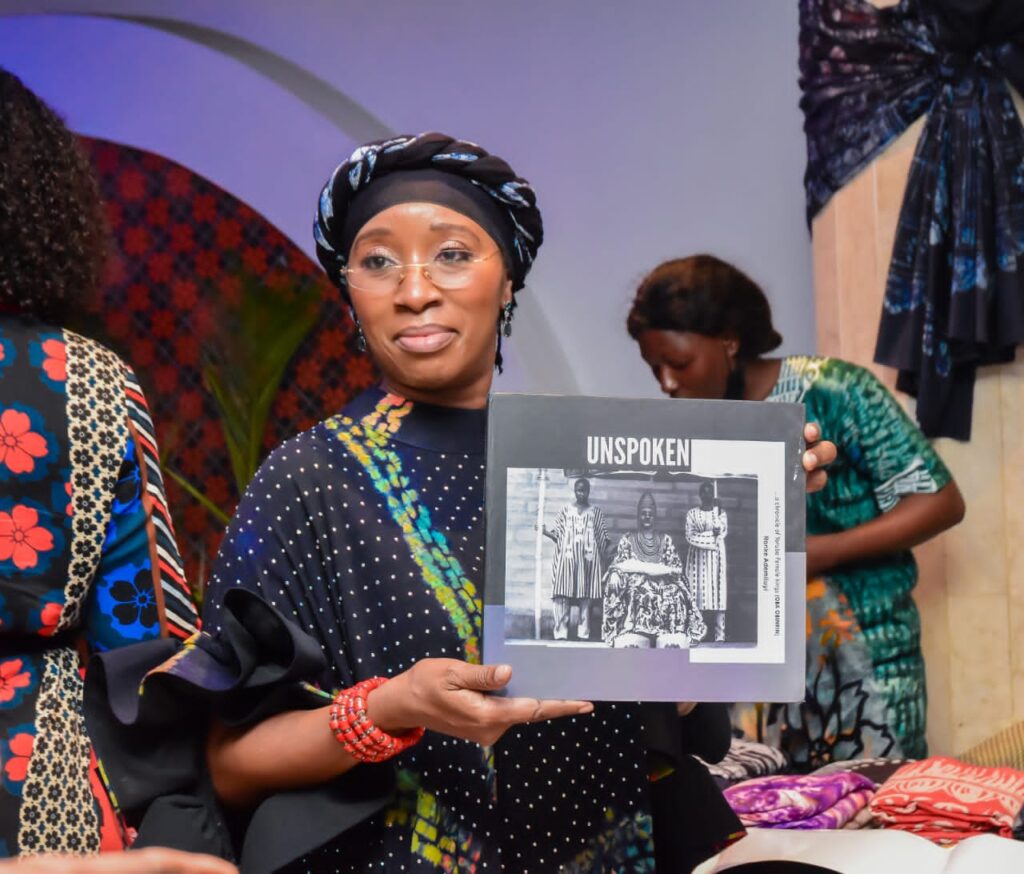
“Meu livro foi nomeado Unspoken Oba Obinrin, devido ao fato de que seu reinado e grandes conquistas não foram falados e muitas pessoas em nossa geração não falam sobre esses grandes Mulheres Antigas e essa foi uma das razões pelas quais decidi escrever um livro sobre elas, para que as mulheres africanas pudessem se inspirar nelas.” Rainha Ronke Ademilyui
E nesta conversa eu quero saber mais sobre este poder feminino na África. E a princesa relata com uma franqueza e muita verdade este poder. Ela, diz: Sim, há poder feminino na realeza africana que remonta ao século XII, muito antes do Ocidente começar a instalar mulheres como monarcas. Esta passagem dentro da história está registrado e publicado no meu livro intitulado Oba Obinrin, que mostra poderosas mulheres yorubás que reinaram como reis. E dentro deste contexto ela finaliza dizendo; Acabei de ser nomeada Embaixadora Cultural de AyanAgalu. A Divindade Patrona do Tambor. A primeira pessoa que começou, a ligação ao tambor falante foi uma mulher. De fato estar vivenciando todas as histórias sobre grandes mulheres na realeza africana é para mim um grande momento na história da minha vida. Também chega em minhas mãos mais uma história real, que também foi uma grande pauta na Magazine.
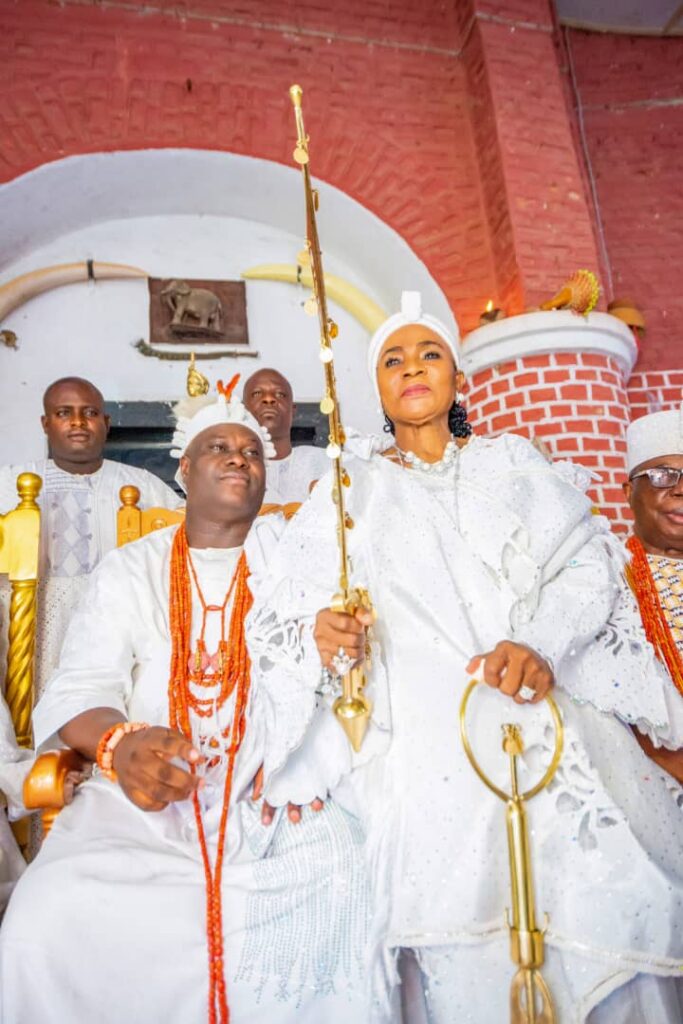
A nomeação e coroação de Erelu Dosumu como O Yeye Oduduwa, a Rainha-Mãe da Casa de Oduduwa. Um dia muito especial que ficou na história de todos os descendentes de Oduduwa. Um lugar sagrado para povo yorubá na Nigéria. O Arole Oduduwa & Ooni de Ifé, Ooni Adeyeye Enitan Ogunwusi Ojaja II, renovou em apelo interminável por amor e unidade de todos os descendentes de Oduduwa, o gesto desta coroação que aumentará ainda mais a prosperidade do povo yorubá onde quer que estejam no mundo. Um fato novo para mim, que ao mesmo tempo traz uma reflexão profunda, onde uma mulher traz consigo este poder junto a sua função como uma Rainha-Mãe desta nação. E diante também desta emoção que eu pude sentir e quis, conhecer mais sobre Erelu Dosumu. Em um breve resumo, a vossa alteza real a princesa Ronke Ademiluyi me, diz: “Em quase meio século de vida pública, Erelu Dosumu provou ser uma mulher notável de resistência, integridade e influência de longo alcance. Em 1980, Kabiyesi Adeyinka Oyekan, a Oba de Lagos, instalou-a como Erelu Kuti IV de Lagos. Com essa nomeação, tornou-se o braço direito da Oba de Lagos. Desde então, executou o seu cargo com maturidade, sagacidade, coragem e empenho”.
“Ao fazer seu discurso durante a cerimônia, a recém-coroada Yeye Oodua expressou profunda gratidão a Ooni Ogunwusi, aos indígenas de Ifé e a raça Oduduwa em todo o mundo pela honra concedida a ela e sua família com a posição altamente exaltada. Ela prometeu trabalhar assiduamente pela preservação da cultura yorubá e fortalecer a unidade dos membros da raça Oduduwa globalmente”.
Este dia especial para os africanos, não fica só registrado no dia da coroação. Mas na memória de cada descendente Oduduwa cuja história ainda está oculta na mídia moderna. Está trazendo essas histórias verdadeiras é viver e descrever em palavras um documento testemunhal da força e da monarquia feminina no Continente africano. Eu acredito e tenho certeza absoluta desta verdade vivida por mim. Com certeza esta passagem na minha vida ficará na história onde eu deixo como legado para as futuras gerações de mulheres como eu, que vão em busca da sua verdadeira origem, desbravando lugares desconhecidos, sem medo. Porque são guiadas pela verdade e amor por uma parte oculta da sua ancestralidade. E quando eu penso que a minha jornada está prestes a acabar, eu me deparo com uma nova rota em Senegal. Eu acredito que o destino é quem faz as minhas conexões. Uma ligação tão íntima e clara que eu não me permito duvidar de mais nada. Eu estou realizando a Turnê África semana de moda, cobrindo as maiores semana de moda realizada nos países do Continente africano. Quando eu tenho a ideia de trazer a moda infantil do Senegal para estar na Magazine. E chega em minhas mãos o material da Mamy, proprietária da marca Tossoko Clothing Afro Kids Wear com sede no Canadá.
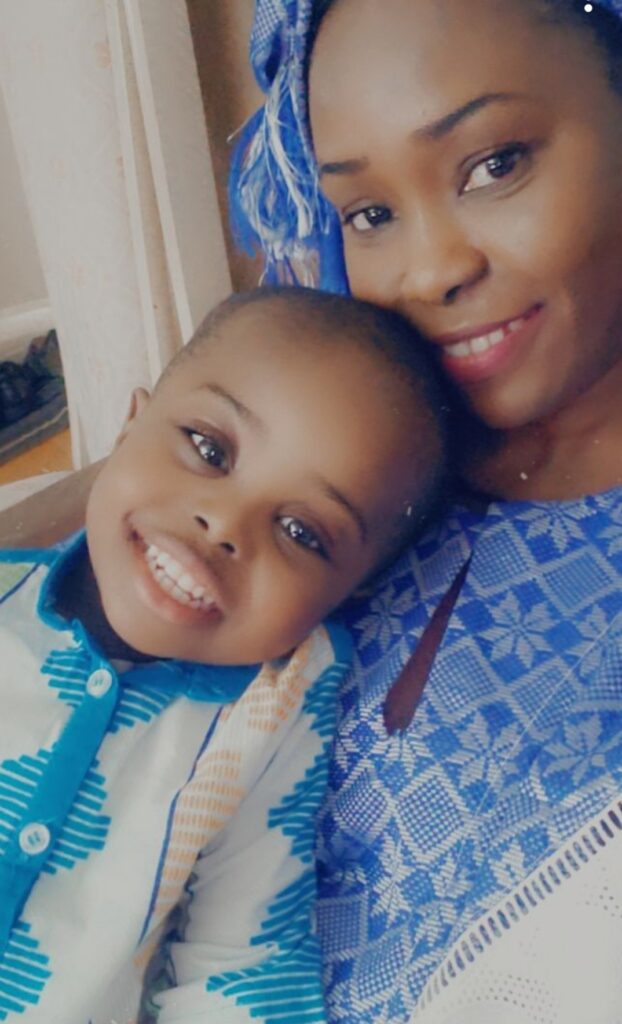
Ela é uma princesa cuja história da sua família foi para mim, uma base de pesquisa. Como eu estava também em busca de um membro desta família real para me trazer mais informações. Eu nem acreditei, que Mamy bem ali, diante dos meus olhos. A história da minha pesquisa começa, assim: Ndatté Yalla – Rainha do Reino de Waalo República do Senegal que lutou contra a colonização francesa e, recebeu diversas ameaças da França, e se recusou a entregar a ilha de Saint Louis. E agora com Mamy (apelido), carinhoso que ela me permitiu usar num gesto de amizade e carinho. Seu nome verdadeiro é Ndieubott ou Ndieumbeut Mbodj era de uma rainha no Senegal conhecida por sua bravura. No reino dela. Waalo que era governado por Rainhas, ela é minha ancestral. É o nome da minha avó, a mãe da minha mãe…. Entende. E eu estou conversando com uma princesa cuja, busca começou com poucas informações. E ela ali diante de mim, me trazendo ricas informações sobre a história da sua família na realeza africana. Eu aproveito e faço uma única pergunta que é um grande resumo desta história perdida na humanidade.
O que a realeza significa para uma mulher no Senegal?
Historicamente, a sociedade senegalesa foi organizada em uma hierarquia governada por famílias reais e nobres sobre castas. Alguns aspectos de nossa cultura desapareceram como reinos, mas descendentes de famílias reais ainda estão aqui. Griots conhecidos por serem um dos responsáveis por contar a história continuam presentes de geração em geração para transmitir as histórias das famílias reais e relembrar as novas gerações. Rainhas eram conhecidas como elegantes, poderosas, belas, e corajosas em liderar seu povo e protegê-lo de invasores e colonialistas.
Em Waalo, por exemplo, onde Ndieumbeutt Mbodj e sua jovem irmã Ndatte Yalla Mbodji governaram e lutaram contra mouros e franceses, eles deixaram uma mensagem poderosa para as mulheres, pois ser mulher não significa ser fraca, apenas seguir atrás dos homens, mas ser a líder na frente ou ao lado deles.
Ser real também é ter um senso de honra e orgulho, uma maneira de se comportar, falar, agir, é tudo sobre uma forte mentalidade e caráter. Às vezes você pode agir de uma forma e as pessoas que conhecem seu antepassado apenas responderão eu entendo sua reação você é a Rainha Ndieumbeutt (wow), e nesse momento você se sente muito orgulhosa e feliz por ter algumas das grandes qualidades da rainha. A realeza tem personagens fortes, mas também são muito pacíficos e diplomáticos, sabem conversar e trazer a paz entre as pessoas. Ter ancestrais reais impactará gerações e gerações e, é uma forma de aumentar o amor por si mesmo e o amor pela identidade nas pequenas gerações. Saiba quem você é, para saber para onde ir e como agir.
“E eu sei, quem eu sou, uma princesa do reino de Waalo. Um dos meus objetivos é fazer com que a pequena geração de negros afro-americanos e caribenhos se orgulhe de sua identidade histórica e de quem eles são.” Palavras de Mamy Princesa do reino Waalo do Senegal
Conhecer essas mulheres para mim não é somente contar uma história, mais resgatar um elo perdido de ancestralidade. Lá no início desta matéria eu citei a Rainha-Mãe Naa Fynnba Korkoi Atiapa 1 da área tradicional de Ngleshie Alata Lafa de Ghana. Que tem na sua raíz ancestral Ga-Dangmes um clã muito grande, que na realidade são um grupo étnico em Ghana, Togo e Benin. Os Ga-Dangmes são um grupo étnico que vive principalmente na grande Accra em Ghana. A Rainha-Mãe é um ícone da moda em Ghana, design, ou seja, uma grande inspiração de mulher para o seu povo e principalmente para os jovens no país.

Outra nomeação e coroação mais recente foi da design Mary Martin London de Londres como Rainha-Mãe de Mafi-Anfoe em Ghana. A nomeação da Rainha-Mãe na Diáspora de Mary Martin London é um lembrete da nossa verdadeira identidade e destino, que somos africanos e estamos prontos para voltar ao nosso berço ancestral. Mafi-Anfoe é uma comunidade virgem em Ghana com muito talentos e culturas ainda desconhecidos. A verdade sobre muitas dessas histórias estarem perdidas, se dar pelo simples fato de não estar tendo evidência na mídia moderna. Para muitos não existe mais realeza africana, ou que nunca existiu. Para mim fazer esta pesquisa foi de uma grande oportunidade única de poder reunir essas grandes mulheres que são hoje minhas amigas, e inspiração de vida não só para mim. Como para o seu povo que estão como no passado, vivendo a realidade desta realeza que nunca deixou de existir. Finalizo este resgate de memória destacando grandes mulheres que construíram e fizeram a realeza africana no Continente africano deixando um grande legado para os seus descendentes, o povo africano e a humanidade.
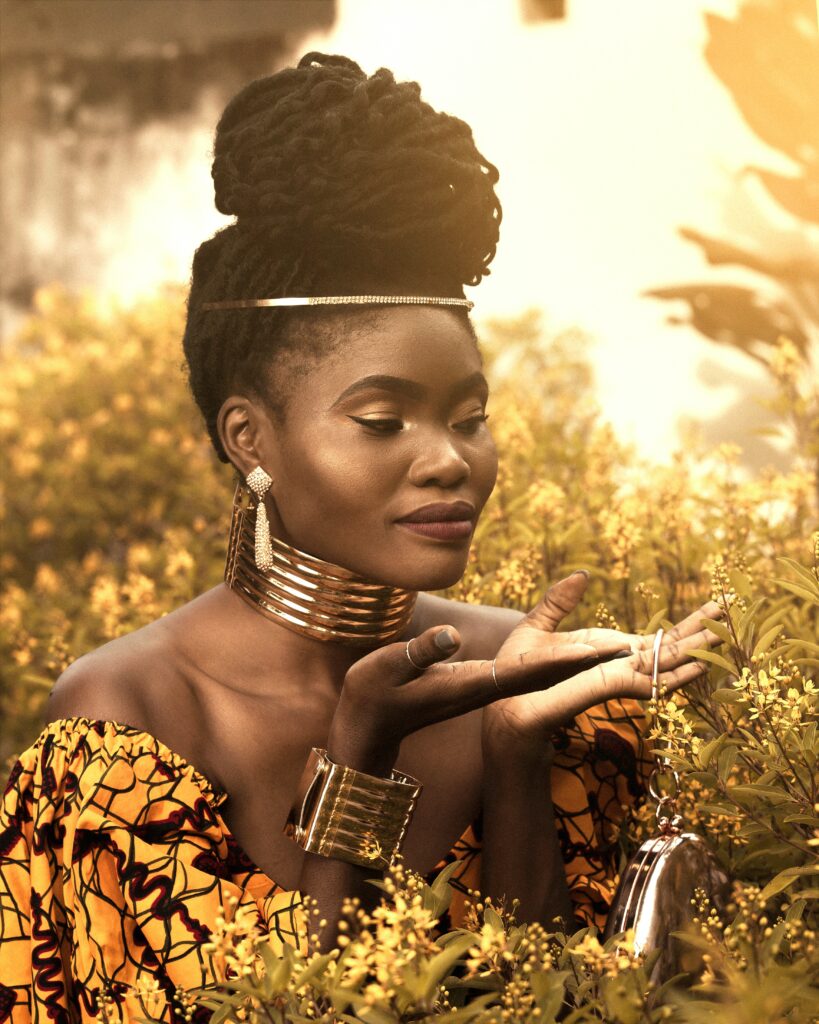
Em Angola a Rainha Nzinga Mbandi que liderou uma revolta contra o governo colonialista português. Ela formou uma confederação com outras tribos e com o Império holandês. Tendo uma idade avançada, ela continuou ativa politicamente enfrentando grandes batalhas. Seu reino teve fim quando ela faleceu em 17 de dezembro de 1663.
Em Madagascar a Rainha Ranavalona I uma mulher forte considerada tirana e cruel. Com uma visão colonialista europeia devido as cobranças feita na época que exigiam dela a ação de proteger sua soberania e território. Ela era temperamental expulsou muitos missionários e desfez vários acordos políticos com Inglaterra e a França. Seu reinado finaliza na madrugada de 16 de agosto de 1861 no seu falecimento.
Em Ghana a Rainha-Mãe Yaa Asantewaa de Ejisu do Império Ashanti. Teve a coragem de liderar uma rebelião Ashanti, e também enfrentou com mão de ferro a Guerra de Golden Stool, contra o colonialismo britânico. Ela era tão destemida por sua bravura e coragem que foi capturada, presa e exilada na ilha de Seychelles, onde veio a falecer em 1921.
#africa #realezaafricanafeminina #rainhasafricanas #mulheresrei #monarquiaafricana #ghananews #nigerianews #segenalnews #ileifenews #ifenews #magazineleafriquestylebrazil #amulherrei #reinadonaafrica #elianaoliveiraoficial #marymartinlondon #ronkeademiluyi #lindafernando #mozambiquenews #rainhaachivanjila #canada #ereludosumu #lagosnews #tossokoclothingafrokidswear

African queens
Female royalty in Africa.
By Eliana Oliveira
Editor in Chief
“Look at the past so you can better understand the future”.Recently the world lost an icon of female power active during its 70-year reign. Queen Elizabeth was one of the most fascinating women who ever lived. For some years I dedicated myself to doing a deeper research on African Queens through their descendants. Because I was looking for the legitimacy of her existence with evidence, avoiding a lot of stories created with fantasies and even a certain legend around them. What is most intriguing to me is that at this time, in which we are living, there is no talk about living African queens and little is said about African royalty. And that there are still several reigns active in the African continent. Magazine Le Afrique Style Brazil is bringing this truth to light through these women who are alive and part of the African kingdom. While the media was focused on England, I was looking for the living descendants of this African female royalty. We were honored to have at the Magazine launch an exclusive fashion editorial featuring Queen Mother Naa Fynnba Korkoi Atiapa 1 from the traditional Ngleshie Alata Lafa area of Ghana an exclusive fashion editorial made by me. Has anyone realized the great importance of this exclusive editorial for Afro descendants, for Brazil and the world?! We also had the honor of stamping on our cover Her Highness Princess Ronke Ademiluyi of Nigeria. And this quest did not stop there, the African continent is a cradle full of mysteries and one of these comes precisely about female royalty. A highly charged and current topic at this moment, especially when the movie A Mulher Rei starring actress Viola Davis arrives, who was here in Brazil to promote it. My need to bring this theme in a true way is not only to bring visibility and legitimacy to the subject of female royalty, but to give light, clarification, information, understanding and appreciation within this narrative. In my research I had the honor of meeting and interviewing businesswoman and TV producer Linda Fernando de Mozambique who is an Achivánjila. An exciting story, full of nuances and truths. Stories of women who carry in their DNA the strength and determination of Queen Achivánjila. The Achivánjila throne does not arrive by lineage, but by election, by the council of elders (…) all obeying the same profile; be strong and smart. And the strong will to overcome obstacles, having the ability to dedicate oneself to noble causes. Altruism, kindness, ability to give life for your community in times of crisis. An Achivánjila bibi is always the deep-rooted tree and faithful depository of the Mataka spirits. Queen Achivánjila is the mother of the nation, of Mozambicans.
“A Wulombe ri nandzi ya ha roche”
Translation: “The truth may take time, but it always arrives”.
This is a Changana proverb – an African ethnicity in Mozambique.
It was precisely this search for the truth that led me to Nigeria. The Kingdom of Ifé is one of the first kingdoms in Africa that had kings and queens and a royal dynasty, this royalty dates back to centuries before Christianity and this we can show through our Ifá scriptures. Words from Her Royal Highness Princess Ronke Ademiluyi. Which tells me more about her ancestry. She, she says; I am a princess of the Great Kingdom of Ifé, where the Progenitor of the Yoruba race comes from. I am a great descendant of Oduduwa the Progenitor of the Yoruba dynasty. Oduduwa was the 1st Ooni of Ifé, the great ancient kingdom of Ifé dates back a thousand years and the Husband of Olokun and I, who came from that lineage. I am a fountain princess, as Ifé is considered the spiritual home and fountain of all of us black people, my great-grandfather was a king of Ifé and I have a close relationship with His Imperial Majesty Ooni Adeyeye Ogunwusi Ojaja II, the current King of the Kingdom of Ife. So our Monarchy of Africa dates back thousands of years ago, it was western colonialism during the struggle for Africa that disabled most of the power of our kings and queens and also during the slave trade too when so many African royalty were captured and sold as slaves. A passage of a time that, although hidden from humanity, still brings a lot of pain in the soul. In this frank conversation I had with Her Royal Highness Princess Ronke Ademiluyi that I was doing an interview and at the same time producing the magazine cover with her. She tells me the story of Queen Moremi who became a literary work written by her entitled UNSPOKEN. Which also became a musical written and directed by her, and a documentary.
“My book was named Unspoken Oba Obinrin, due to the fact that their reign and great achievements were not talked about and many people in our generation do not talk about these great Ancient Women and that was one of the reasons why I decided to write a book about them, so that African women could be inspired by them.” Queen Ronke Ademilyui
And in this conversation I want to know more about this female power in Africa. And the princess recounts this power frankly and very truthfully. She says: Yes, there is female power in African royalty dating back to the twelfth century, long before the West started installing women as monarchs. This passage within history is recorded and published in my book entitled Oba Obinrin, which shows powerful Yoruba women who reigned as kings. And within this context she ends by saying; I have just been appointed Cultural Ambassador of AyanAgalu. The Patron Deity of the Drum. The first person who started the talking drum connection was a woman. In fact to be experiencing all the stories about great women in African royalty is for me a great moment in the history of my life. Another real story arrives in my hands, which was also a big topic in the Magazine. The appointment and coronation of Erelu Dosumu as O Yeye Oduduwa, the Queen Mother of the House of Oduduwa. A very special day that went down in the history of all the descendants of Oduduwa. A sacred place for Yoruba people in Nigeria. The Arole Oduduwa & Ooni of Ifé, Ooni Adeyeye Enitan Ogunwusi Ojaja II, renewed in endless appeal for love and unity of all the descendants of Oduduwa, the gesture of this coronation that will further increase the prosperity of the Yoruba people wherever they are in the world. A new fact for me, which at the same time brings a deep reflection, where a woman brings with her this power along with her role as a Queen Mother of this nation. And in the face of this emotion that I could feel and wanted to know more about Erelu Dosumu. In a brief summary, Her Royal Highness Princess Ronke Ademiluyi me, says: “In nearly half a century of public life, Erelu Dosumu has proven herself to be a remarkable woman of endurance, integrity and far-reaching influence. In 1980, Kabiyesi Adeyinka Oyekan, the Oba of Lagos, installed it as Erelu Kuti IV of Lagos. With this appointment, she became the right-hand man of the Oba de Lagos. Since then, she has carried out her job with maturity, wit, courage and commitment.”
“While delivering her speech during the ceremony, the newly crowned Yeye Oodua expressed deep gratitude to Ooni Ogunwusi, the indigenous people of Ifé and the Oduduwa race around the world for the honor bestowed on her and her family with the highly exalted position. She promised to work assiduously for the preservation of Yoruba culture and to strengthen the unity of the members of the Oduduwa race globally.”
This special day for Africans is not only recorded on the day of the coronation. But in the memory of every Oduduwa descendant whose story is still hidden in modern media. Bringing these true stories is to live and describe in words a testimonial document of the strength and female monarchy on the African continent. I believe and am absolutely sure of this truth lived by me. This passage in my life will surely go down in history where I leave it as a legacy for future generations of women like me, who go in search of their true origin, breaking through unknown places, without fear. Because they are guided by the truth and love for a hidden part of their ancestry. And just when I think my journey is about to end, I come across a new route in Senegal. I believe that fate is who makes my connections. A bond so intimate and clear that I don’t allow myself to doubt anything else. I’m running the Africa Fashion Week Tour, covering the biggest fashion weeks held in the countries of the African continent. When I have the idea of bringing children’s fashion from Senegal to the Magazine. And I get the material from Mamy, owner of the Tossoko Clothing Afro Kids Wear brand based in Canada. She is a princess whose family history was a research base for me. As I was also looking for a member of this royal family to bring me more information. I couldn’t believe that Mamy was right there in front of my eyes. The story of my research begins like this: Ndatté Yalla – Queen of the Kingdom of Waalo Republic of Senegal who fought against French colonization and, received several threats from France, and refused to surrender the island of Saint Louis. And now with Mamy (nickname), affectionate that she allowed me to use in a gesture of friendship and affection. Her real name is Ndieubott or Ndieumbeut Mbodj was a queen in Senegal known for her bravery. In her realm. Waalo who was ruled by Queens, she is my ancestor. She is my grandmother’s name, my mother’s mother…. You see. And I’m talking to a princess whose quest began with little information. And she there before me, bringing me rich information about her family history in African royalty. I take the opportunity and ask a single question that is a great summary of this lost history in humanity.
What does royalty mean to a woman in Senegal?
Historically, Senegalese society was organized into a hierarchy ruled by royal and noble families over caste. Some aspects of our culture disappeared as kingdoms, but descendants of royal families are still here. Griots known for being one of those responsible for telling the story are still present from generation to generation to transmit the stories of the royal families and remember the new generations. Queens were known as elegant, powerful, beautiful and courageous in leading their people and protecting them from invaders and colonialists.
In Waalo, for example, where Ndieumbeutt Mbodj and his young sister Ndatte Yalla Mbodji ruled and fought against Moors and French, they left a powerful message for women, for being a woman does not mean being weak, just following behind men, but being the leader in front of or beside them.
Being real is also having a sense of honor and pride, a way of behaving, speaking, acting, it’s all about a strong mindset and character. Sometimes you can act one way and people who know your ancestor will just respond I understand your reaction you are Queen Ndieumbeutt (wow) and at that moment you feel very proud and happy that you have some of the great qualities of the queen. Royalty has strong characters, but they are also very peaceful and diplomatic, they know how to talk and bring peace between people. Having real ancestors will impact generations and generations, and it is a way to increase self-love and love for identity in younger generations. Know who you are, so you know where to go and how to act.
“And I know, who I am, a princess of the kingdom of Waalo. One of my goals is to make the small generation of black African-Americans and Caribbeans proud of their historical identity and who they are.” Words from Mamy Princess of the Waalo Kingdom of Senegal
Knowing these women for me is not just telling a story, but rescuing a lost link of ancestry. At the beginning of this article I quoted the Queen Mother Naa Fynnba Korkoi Atiapa 1 from the traditional Ngleshie Alata Lafa area of Ghana. That has in its ancestral roots the Ga-Dangmes a very large clan, which are actually an ethnic group in Ghana, Togo and Benin. The Ga-Dangmes are an ethnic group that live mainly in greater Accra in Ghana. The Queen Mother is an icon of fashion in Ghana, design, that is, a great inspiration of a woman for her people and especially for the young people in the country. Another more recent appointment and coronation was by design Mary Martin London of London as Queen Mother of Mafi-Anfoe in Ghana. The appointment of the Queen Mother in the Diaspora by Mary Martin London is a reminder of our true identity and destiny, that we are Africans and ready to return to our ancestral cradle. Mafi-Anfoe is a virgin community in Ghana with many talents and cultures still unknown. The truth about many of these stories being lost is due to the simple fact that there is no evidence in the modern media. For many, African royalty no longer exists, or has never existed. For me, doing this research was a great unique opportunity to be able to bring together these great women who are now my friends, and life inspiration not only for me. As for its people who are, as in the past, living the reality of this royalty that never ceased to exist. I conclude this memory rescue highlighting great women who built and made African royalty on the African continent leaving a great legacy for their descendants, the African people and humanity.
In Angola, Queen Nzinga Mbandi led a revolt against the Portuguese colonialist government. It formed a confederation with other tribes and with the Dutch Empire. At an advanced age, she remained politically active facing major battles. Her reign ended when she died on December 17, 1663.
In Madagascar Queen Ranavalona I is a strong woman considered tyrannical and cruel. With a European colonialist vision due to the demands made at the time that demanded the action of protecting its sovereignty and territory. She was temperamental, expelled many missionaries and undone various political agreements with England and France. Her reign ends at dawn on August 16, 1861 with her death.
In Ghana the Queen Mother Yaa Asantewaa of Ejisu of the Ashanti Empire. She had the courage to lead an Ashanti rebellion, and she also faced the Golden Stool War against British colonialism with an iron fist. She was so fearless for her bravery and courage that she was captured, imprisoned and exiled to the island of Seychelles, where she died in 1921.


